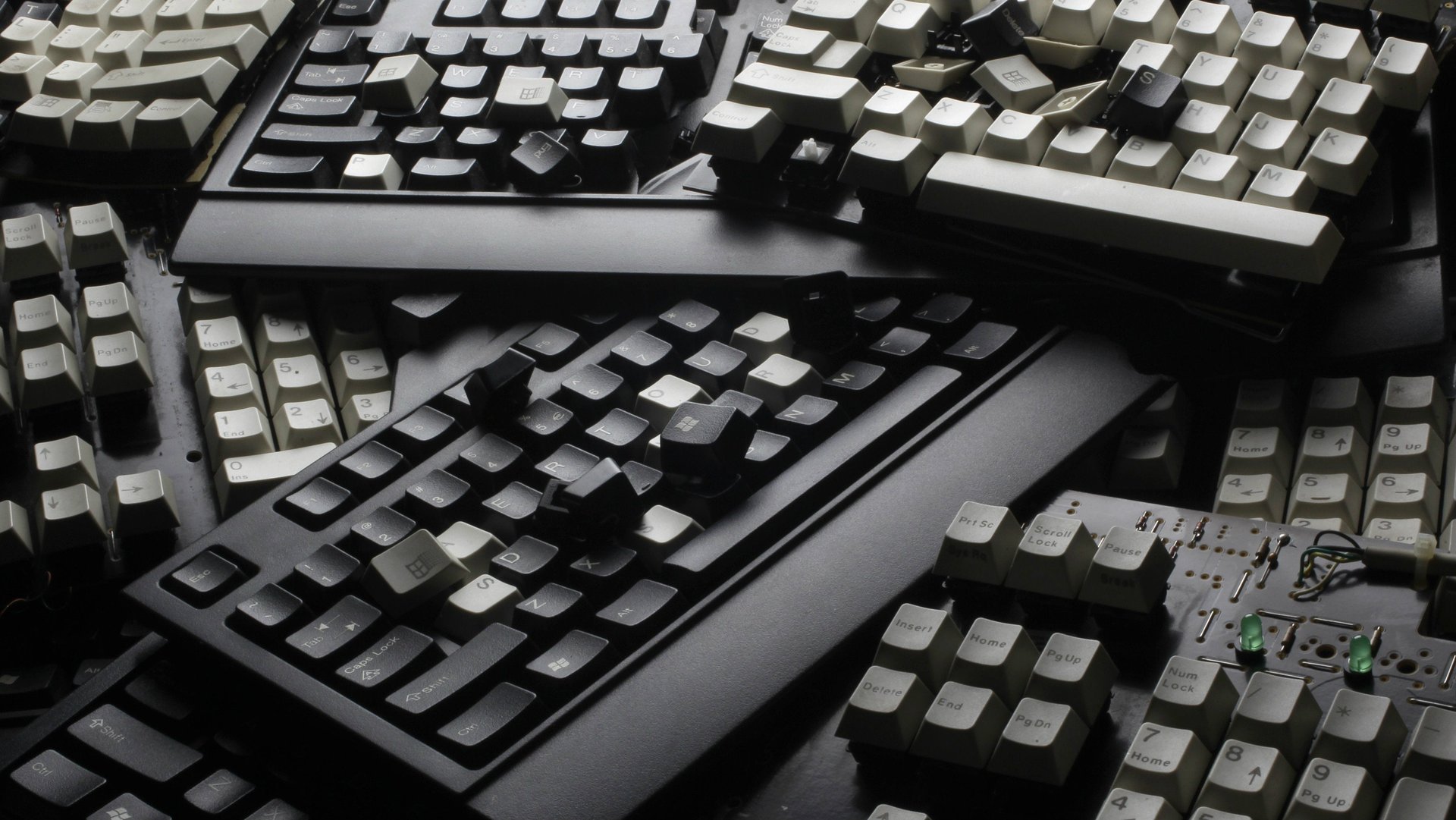Studies show keyboards have a powerful “QWERTY effect” that’s shaping our word preferences
QWERTY, a strange-sounding word that refers to the most common type of keyboard, is apparently influential enough to spawn it’s own effect. Repeated studies have found that we seem to prefer certain words depending on the number of letters they feature from the right hand side of the keyboard.


QWERTY, a strange-sounding word that refers to the most common type of keyboard, is apparently influential enough to spawn it’s own effect. Repeated studies have found that we seem to prefer certain words depending on the number of letters they feature from the right hand side of the keyboard.
In the latest and most in-depth study, David Garcia at the Swiss Federal Institute of Technology in Zurich and Markus Strohmaier at the Leibniz Institute for the Social Sciences in Mannheim, Germany, analyzed millions of product names and titles from 11 websites, including Amazon, Yelp, Rotten Tomatoes, YouTube, and even Pornhub.
They presented their “robust evidence” for the QWERTY effect at the 25th international World Wide Web conference in April, which has a peer-reviewed selection process. In their paper, published online, Garcia and Strohmaier showed items with more letters from the right hand side of the keyboard received higher ratings in nine of the 11 websites. The reverse was only true for one of the sites, porn webpage Redtube. “This suggests that the hand-meaning relation does not need to manifest in the same way in all context, “ add the authors.
The researchers also analyzed the text of reviews, and found that those that expressed a positive opinion of products used more words with a high ratio of right-hand side letters.
There are various theories as to why we might prefer words with more right-hand keyboard letters. It could simply be a function of a cross-cultural implicit bias to associate right with good and left with bad. We could also favor right-hand letters because they’re easier to type—both because most people are right-handed, and because there are fewer letters on the right side of the keyboard than the left.
Naomi Baron, professor at American University with a focus on language and technology, tells the New Scientist that our apparent preference could simply be because there are more vowel sounds on the right-hand side of the keyboard, and vowels are linked with positive meaning. “We don’t put emotions into most of our consonants, we put them into our vowels,” she says.
The QWERTY effect doesn’t necessarily determine what we buy, as Garcia and Strohmaier didn’t find evidence of it in the top-selling Amazon products. However, it could affect how parents choose to name their children—a 2014 paper found that baby names with more right-hand side letters became more popular after the QWERTY keyboard became standard in the 1960s.
Meanwhile, a 2012 study found that the QWERTY effect seems to be particularly strong for words invented after the keyboard was introduced, which would explain why we now spend so much time LOL-ing.